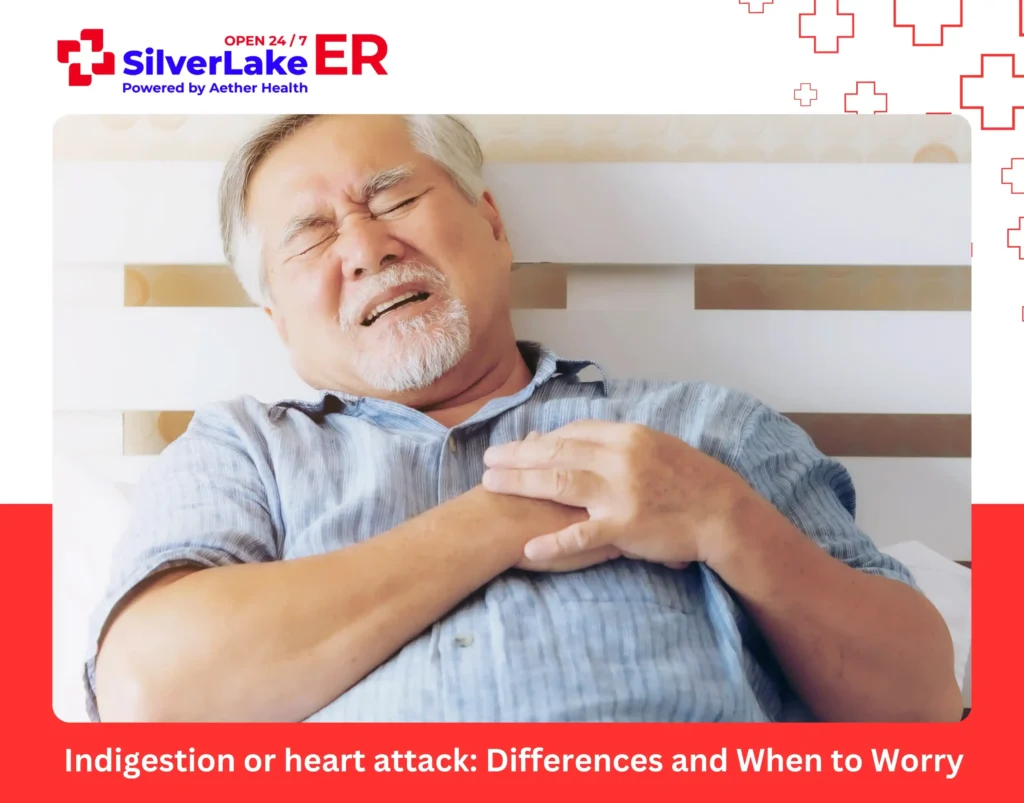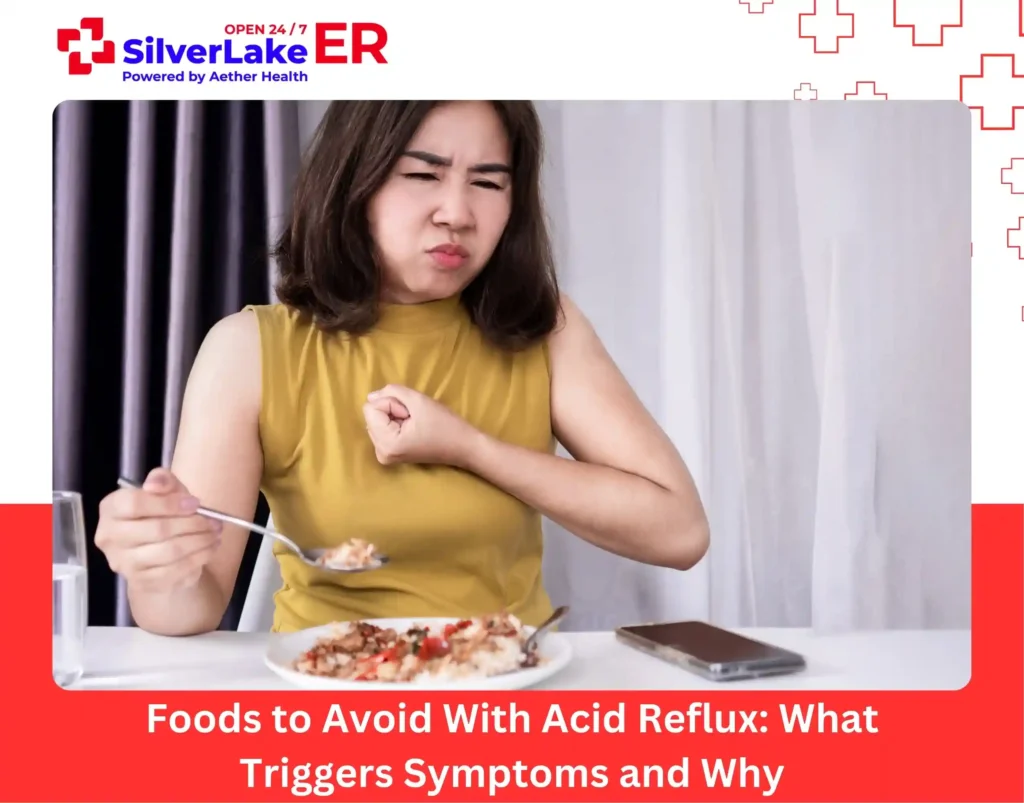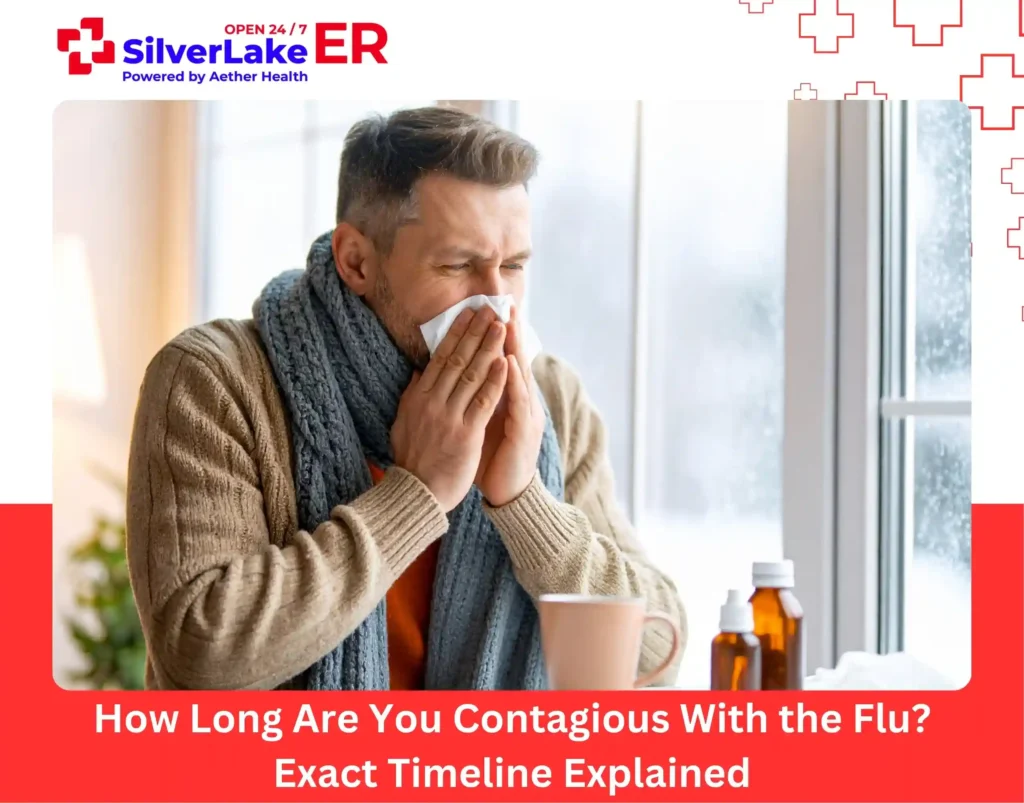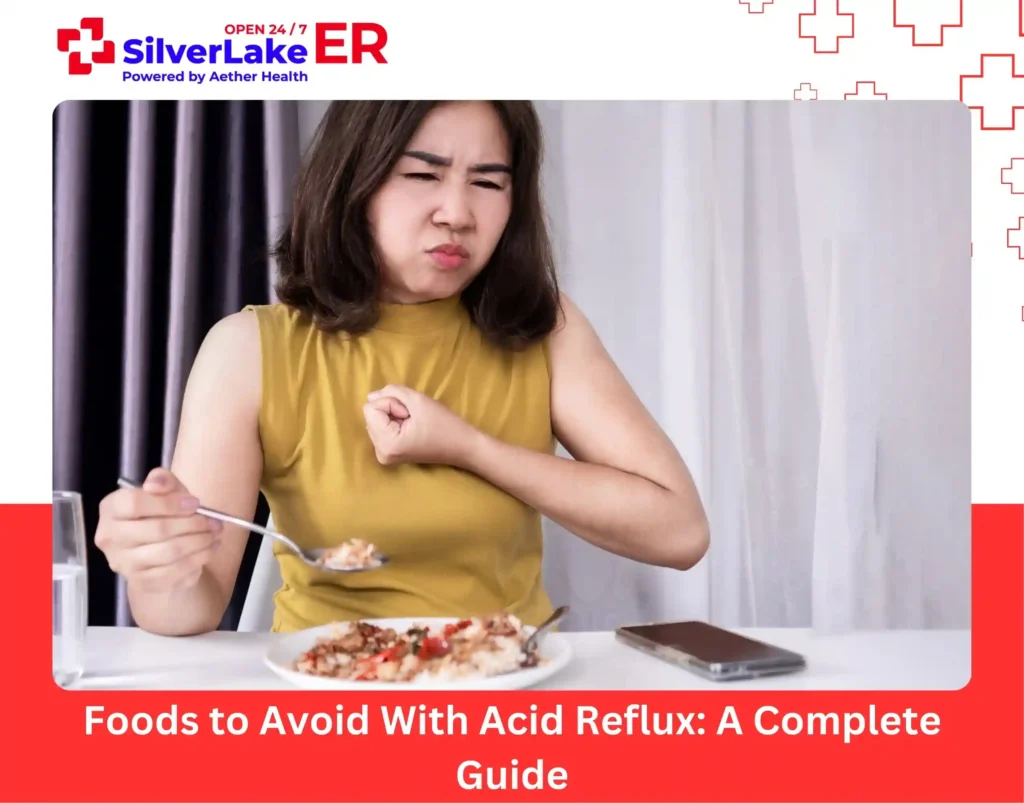Do you know that indigestion and a heart attack almost feel the same? You’ve chest pain in both conditions. Some people go to bed thinking they have heartburn and never wake up. Others rush to the ER, thinking it’s a heart attack, and find out it’s just indigestion.
Knowing how to spot the differences between indigestion and a heart attack could save lives. Let’s break down if it is indigestion or heart attack and when to seek emergency care.
Why Indigestion and Heart Attack Can Feel Similar
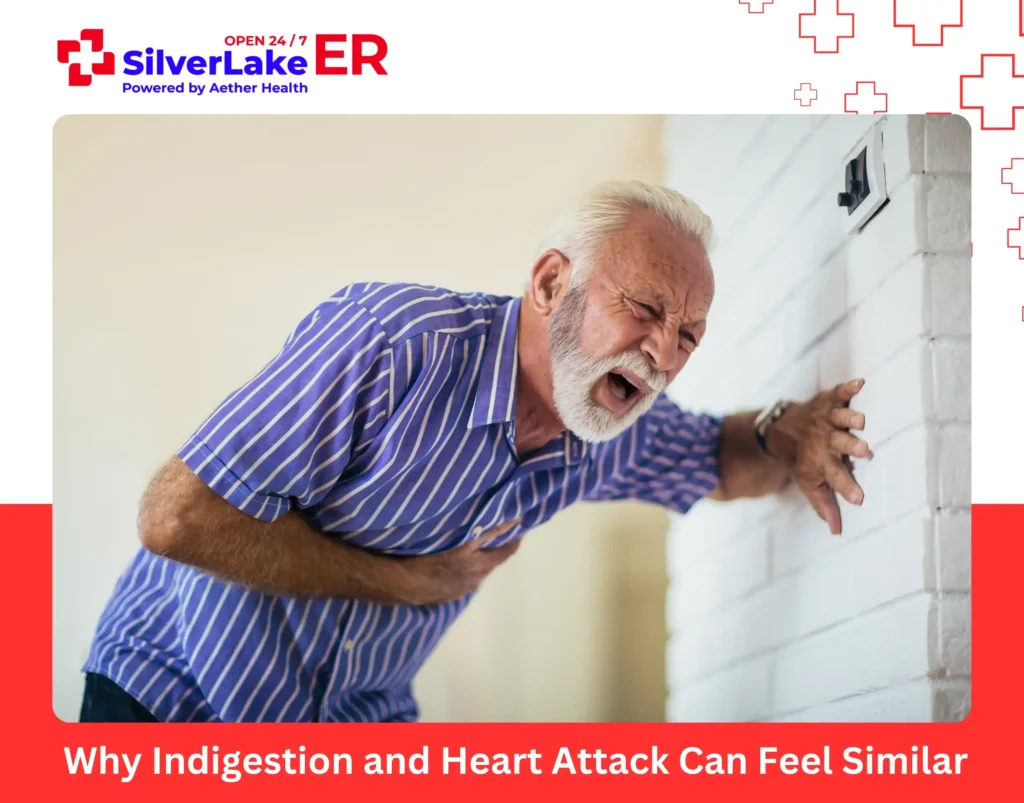
Indigestion, medically termed dyspepsia, occurs when your digestive system has difficulty processing food, resulting in stomach irritation that can radiate upward toward the chest.
Conversely, a heart attack develops when blood flow to the heart muscle becomes obstructed, typically due to a blocked coronary artery.
Your stomach and your heart sit close in the chest, and they share nerve pathways. That’s why chest discomfort from the stomach can sometimes mimic heart pain, and heart pain can sometimes feel like it’s coming from the stomach.
Identifying What Your Chest Pain Is Telling You
When evaluating whether you’re experiencing indigestion or heart attack, the specific characteristics of your chest pain provide valuable diagnostic clues.
Signs of Indigestion
- Frequent belching or gas
- Mild to moderate nausea
- Stomach rumbling or gurgling sounds
- Acidic or sour taste in the mouth
- Regurgitation of food or stomach acid
- Burning sensation similar to severe heartburn
- Sharp or discomfort in the upper abdominal area
- Pain may improve with burping, changing positions, or releasing gas
- Discomfort often improves with simple remedies such as antacids
- Pain that typically subsides within a few hours
- Abdominal bloating and feeling of fullness
Signs of a Heart Attack
- Profuse sweating, particularly cold, clammy perspiration
- Nausea and vomiting, often severe
- Lightheadedness or feeling faint
- Shortness of breath, which may occur with or without chest pain
- Overwhelming sense of anxiety
- Unusual fatigue, particularly common in women
- Weakness or numbness in the arms
- Crushing sensation in the center of the chest
- Feeling of tightness around your chest
- Pain that persists for several minutes and doesn’t improve with rest
- Heart attack pain rarely responds to any measures and tends to persist or worsen over time
Heart attack symptoms tend to be more severe and create a sense of medical urgency, while indigestion symptoms, though uncomfortable, are generally more familiar and manageable.
Pain Location and Radiation Patterns
The location and spread of pain serve as important indicators when determining indigestion or heart attack.
Indigestion
Indigestion pain typically remains localized to the upper abdomen, lower chest region, or stomach area. While severe indigestion may cause some upward discomfort, it rarely spreads to the arms, back, neck, or jaw with the same intensity or pattern as heart attack pain.
Heart attack
Heart attack pain characteristically begins in the center of the chest and may radiate to:
- The left arm (most commonly affected)
- Both arms simultaneously
- The upper back, particularly between the shoulder blades
- The neck and jaw area
- The upper abdomen
This radiation pattern occurs because the heart shares neural pathways with these regions.
Timing and Triggering Factors
The timing and circumstances surrounding your symptoms provide important context for the indigestion or heart attack evaluation.
Indigestion symptoms typically have identifiable triggers:
- Occurring during or within hours of eating
- Following consumption of large, fatty, spicy, or acidic meals
- Triggered by lying down shortly after eating
- Associated with alcohol consumption
- Related to certain medications or stress
Heart attack symptoms often present more unpredictably:
- May occur at rest or during sleep
- Can be triggered by physical exertion or emotional stress
- Often unrelated to recent food consumption
- May develop gradually or appear suddenly
Risk Factors Make a Difference
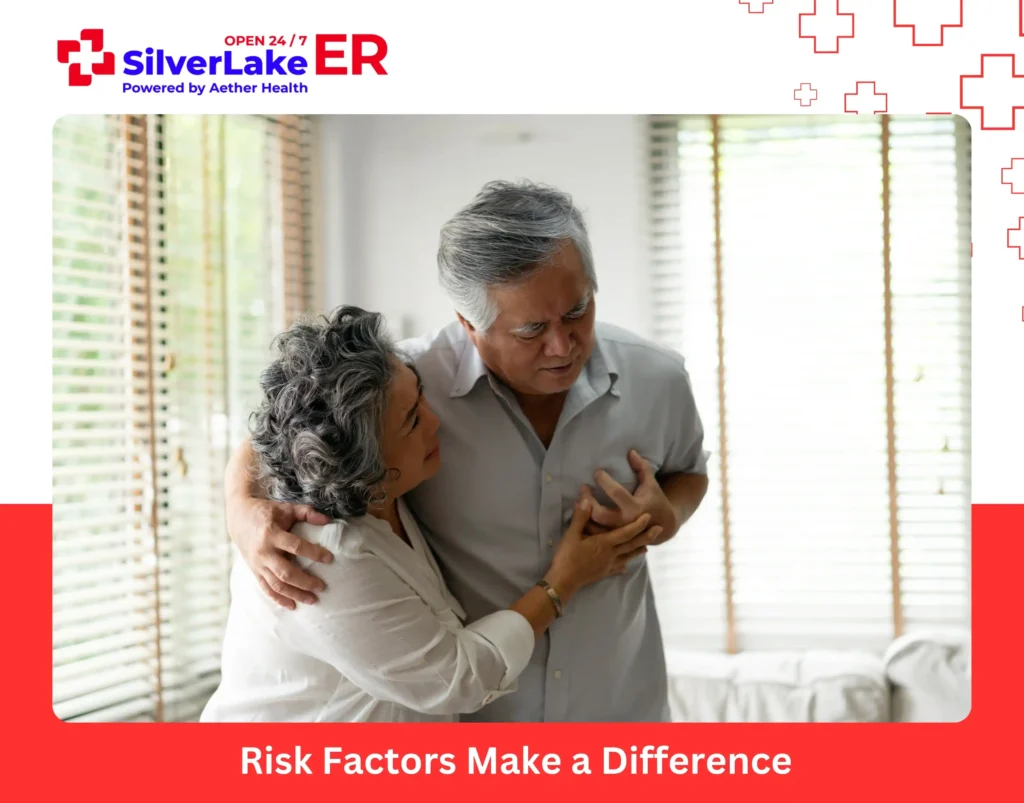
Your background and health history can significantly influence the odds. You’re at higher risk of a heart attack if you:
- Have high blood pressure, diabetes, or high cholesterol
- Smoke or have smoked in the past
- Are overweight or physically inactive
- Have a family history of heart disease
- Are over 50 (though younger people aren’t immune)
Indigestion or heart attack female symptoms can be more challenging to recognize. Female heart attack symptoms are often more subtle, such as unusual fatigue, nausea that mimics food poisoning, or jaw pain extending to the ear. These “atypical” signs make women more likely to dismiss heart attacks as digestive issues, leading to dangerous delays in seeking care. If any of these risk factors apply, chest pain should always be taken more seriously.
Indigestion or Heart attack: Medical Evaluation
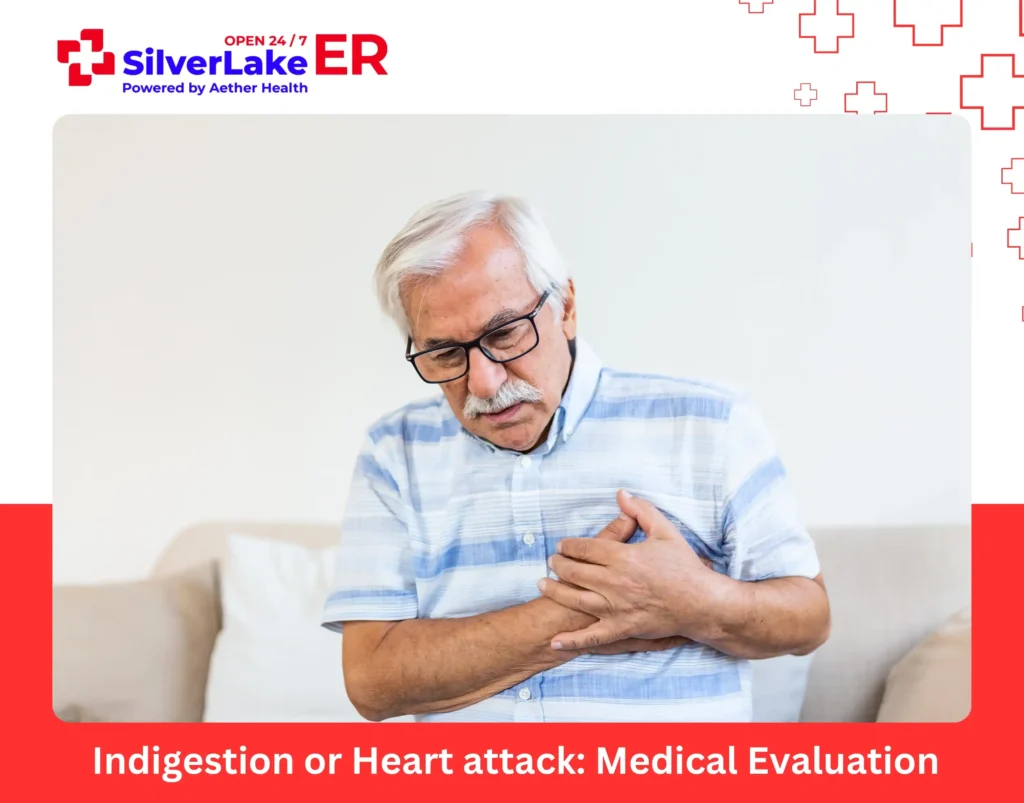
While understanding the differences between indigestion and a heart attack is valuable, definitive diagnosis requires professional medical assessment. The following tools help distinguish between these conditions:
- Electrocardiograms (ECGs) to evaluate heart rhythm and electrical activity
- Cardiac enzyme blood tests to detect heart muscle damage
- Chest X-rays to assess heart and lung conditions
- Advanced imaging studies, when indicated
Prevention Strategies for Both Conditions
You can take proactive steps to reduce your risk of developing indigestion or heart attack.
Heart attack prevention measures:
- Maintain a heart-healthy diet low in saturated fats and high in fruits and vegetables
- Engage in regular physical activity as recommended by your physician
- Avoid tobacco use and limit alcohol consumption
- Manage stress through healthy coping mechanisms
- Control blood pressure and cholesterol levels
- Maintain a healthy body weight
- Take prescribed medications as directed
- Schedule regular check-ups with your healthcare provider
Indigestion prevention strategies:
- Consume smaller, more frequent meals
- Identify and avoid trigger foods
- Avoid lying down immediately after eating
- Limit consumption of fatty, spicy, or acidic foods
- Stay adequately hydrated
- Manage stress levels effectively
- Maintain regular eating schedules
Key Takeaway
Here’s the golden rule: if you’re in doubt, get checked out. Don’t wait around hoping symptoms will fade because heart attacks caught early are far more treatable.
The only sure way to know if it’s indigestion or heart attack is through medical testing. At Aether Health SilverLake ER, we have advanced diagnostic tools on-site to quickly tell the difference between stomach issues and heart emergencies. It’s always better to get checked and be safe than to ignore it and regret it later.
FAQs
1. How do I know my chest pain is not heart-related?
Non-heart-related chest pain often worsens with movement, deep breathing, or pressing on the chest, and may improve with antacids or rest.
2. What does a blocked artery feel like?
It may cause pressure, heaviness, or squeezing in the chest that can spread to the arms, neck, jaw, or back, often with shortness of breath or sweating.
3. How to remove trapped gas in the chest?
Gentle walking, stretching, drinking warm water, or using over-the-counter antacids can help relieve gas-related chest discomfort.
4. Where is GERD chest pain located?
GERD chest pain is usually a burning sensation behind the breastbone, sometimes rising toward the throat.
5. Should I worry about chest pain that comes and goes?
Yes, intermittent chest pain can still be a sign of heart problems and should be checked promptly.
6. Can sleeping position cause chest pain?
Lying awkwardly or with poor posture can strain chest muscles or put pressure on nerves.
7. What pill stops chest pain?
For indigestion-related pain, over-the-counter antacids may help, but for possible heart-related pain, call emergency services immediately rather than taking medication.

